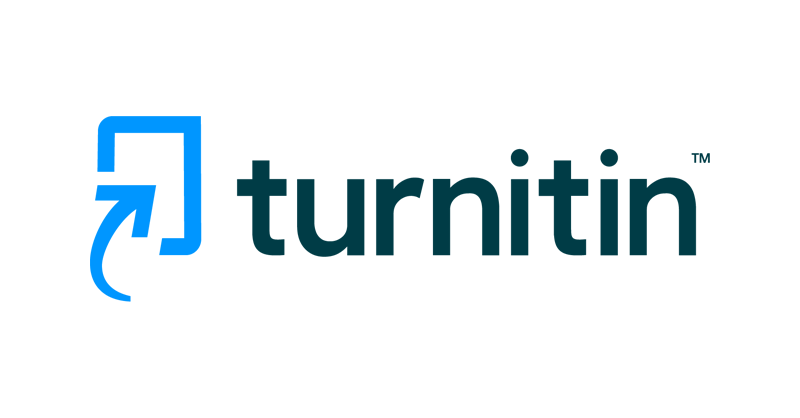ANALISIS KEBUTUHAN PENGEMBANGAN LKPD BERBASIS PjBL-STEM UNTUK MEREDUKSI PERBEDAAN PENALARAN ILMIAH DAN PERFORMANCE ARGUMENTASI
DOI:
https://doi.org/10.31957/pjpe.v1i2.1393Abstract
Penelitian ini bertujuan untuk mendeskripsikan kebutuhan LKPD berbasis PjBL-STEM yang mampu mereduksi perbedaan penalaran ilmiah dan performance berargumentasi. Data dikumpulkan melalui wawancara, lembar observasi, angket dan analisis dokumen. Hasil pengumpulan data menunjukkan: (1) bahan ajar yang tersedia berupa ringkasan materi dan kumpulan soal, (2) permasalahan yang termuat dalam LKPD belum mengakomodasi gaya belajar dan pengetahuan awal siswa, serta (3) kurang melatih kemampuan penalaran ilmiah dan performance berargumentasi. Berdasarkan hasil analisis kebutuhan, peneliti merekomendasikan perlu dikembangkan LKPD yang mampu mereduksi perbedaan penalaran ilmiah dan performance berargumentasi siswa untuk mempermudah guru dalam mengakomodasi gaya belajar dan pengetahuan awal siswa yang beragam.ANALISIS KEBUTUHAN PENGEMBANGAN LKPD BERBASIS PjBL-STEM UNTUK MEREDUKSI PERBEDAAN PENALARAN ILMIAH DAN PERFORMANCE ARGUMENTASIDownloads
References
Amin, A. M. (2012). Pengembangan Perangkat Pembelajaran Biologi Berbasis Konstruktivisme Berdasar Teori Sosial Vygotsky di Sekolah Menengah Atas. Sainsmat: Jurnal Ilmiah Ilmu Pengetahuan Alam, 1(2), 109–124.
Asmawati, A. A., & Naswandi, N. (2012). Pengembangan Media Pembelajaran Biologi Berbasis Macromedia Flash pada Konsep Sistem Reproduksi Manusia. Bionature, 13(2).
Bhat, M. A. (2019). Learning Styles in the Context of Reasoning and Problem Solving Ability: An Approach Based on Multivariate Analysis of Variance. International Journal of Psychology and Educational Studies, 6(1), 10–20.
Budiarti, I S, Suparmi, A., Sarwanto, S., & Harjana, H. (2020). Effectiveness of Generation, Evaluation, and Modification-Cooperative Learning (Gem-Cl) Model Selaras Bakar Batu Cultural Practice in Papua. Jurnal Pendidikan IPA Indonesia, 9(1).
Budiarti, Indah Slamet, & Suparmi, A. (2017). Analyzes of students’ higher-order thinking skills of heat and temperature concept. Journal of Physics: Conference Series, 909(1), 12055. IOP Publishing.
Çakici, Y., & Turkmen, N. (2013). An investigation of the effect of project-based learning approach on children’s achievement and attitude in science. The Online Journal of Science and Technology, 3(2), 9–17.
Grant, M. M. (2002). Getting a grip on project-based learning: Theory, cases and recommendations. Meridian: A Middle School Computer Technologies Journal, 5(1), 83.
Hailikari, T., Nevgi, A., & Lindblom-Ylänne, S. (2007). Exploring alternative ways of assessing prior knowledge, its components and their relation to student achievement: A mathematics based case study. Studies in Educational Evaluation, 33(3–4), 320–337.
Han, S., Capraro, R., & Capraro, M. M. (2015). How science, technology, engineering, and mathematics (STEM) project-based learning (PBL) affects high, middle, and low achievers differently: The impact of student factors on achievement. International Journal of Science and Mathematics Education, 13(5), 1089–1113.
Hidayat, T., Mulyati, S., & Qohar, A. (2017). Penerapan Metode Penemuan Terbimbing di Kelas VIII SMP. Jurnal Pendidikan: Teori, Penelitian, Dan Pengembangan, 2(8), 1116–1122.
Jaleel, S., & Thomas, A. (2019). Learning Styles Theories and Implications for Teaching Learning. Horizon Research Publishing, USA.
Kalyuga, S., & Sweller, J. (2004). Measuring knowledge to optimize cognitive load factors during instruction. Journal of Educational Psychology, 96(3), 558.
Kubiatko, M., & Vaculová, I. (2011). Project-based learning: characteristic and the experiences with application in the science subjects. Energy Education Science and Technology Part B: Social and Educational Studies, 3(1), 65–74.
Mortimore, T. (2008). Dyslexia and learning style: a practitioner’s handbook. John Wiley & Sons.
Kemendikbud. (2016). Tahun 2016, Standar proses untuk. Satuan Pendidikan Dasar Dan Menengah, Jakarta, Kemdikbud.
Penger, S. (2009). Testing Dunn & Dunn’s and Honey & Mumford’s learning style theories: The case of the Slovenian higher education system. Management: Journal of Contemporary Management Issues, 14(2), 1–20.
Purwaningrum, D., & Sumardi, S. (2016). Efek strategi pembelajaran ditinjau dari kemampuan awal matematika terhadap hasil belajar matematika kelas XI IPS. Manajemen Pendidikan, 11(2), 155–167.
Siwa, I. B., & Muderawan, I. W. (2013). Pengaruh pembelajaran Berbasis Proyek dalam Pembelajaran Kimia terhadap Keterampilan Proses Sains ditinjau dari gaya kognitif siswa. Jurnal Pendidikan Dan Pembelajaran IPA Indonesia, 3(2).
Tamim, S. R., & Grant, M. M. (2013). Definitions and uses: Case study of teachers implementing project-based learning. Interdisciplinary Journal of Problem-Based Learning, 7(2), 3.
Viyanti, V., Cari, C., Prasetyo, Z. K., & Maulina, H. (2020). Does the Cognitive Activity can Generate Student’s Physics Argumentation Performance Features? Jurnal Ilmiah Pendidikan Fisika Al-Biruni, 9(1), 177–183.
Yang, I.-H., Kwon, Y.-J., Kim, Y.-S., Jang, M.-D., Jeong, J.-W., & Park, K.-T. (2002). Effects of students’ prior knowledge on scientific reasoning in density. Journal of The Korean Association For Science Education, 22(2), 314–335.







